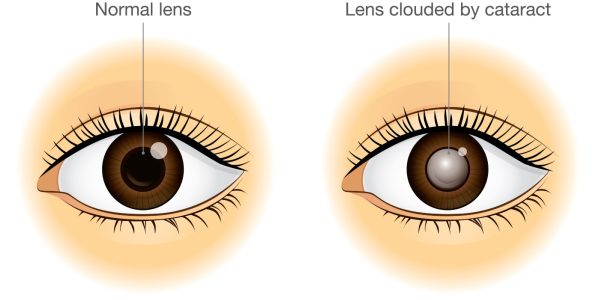
Although every surgery has risks, leaving cataracts untreated can also be risky. Read on as Dr. Mandel explains what can happen if cataracts go untreated.
Cataracts Will Not Go Away On Their Own
Cataracts do not need to be immediately removed simply because they are present. In the early stages of a cataract, its effect on vision may be minimal, and the cataract may not interfere with daily activities or quality of life.
However, cataracts are a degenerative condition. Left untreated, they will eventually get worse. It is very difficult to predict how quickly cataracts will worsen and vision will deteriorate.
Worsening vision can threaten your safety and wellness. You may be at risk of a devastating fall that could cause a fracture. Also, driving can become very difficult. You put yourself and other drivers at risk of a motor vehicle accident when your vision is limited.
Deteriorating vision due to cataracts can interfere with your everyday activities and hobbies. As cataracts worsen, you may lose the ability to read, watch television, cook, clean or engage in your favorite hobbies. You might start to feel less independent and less social. With time, overall quality of life can decline considerably.
Surgery Could Become More Difficult
Another risk of delaying cataract surgery is that it increases the complexity of the procedure. Generally, cataracts are easier to remove when they first start to become bothersome and affect the activities of daily living. Waiting too long to remove cataracts could make the operation more difficult because the cataracts become very dense.
An experienced cataract surgeon like Mark Mandel, MD, can advise you of the right time to undergo surgery, based on an evaluation of your eyes, vision and symptoms.
To book an informational consultation with Dr. Mandel at one of his four office locations, please email him or call 510-886-3937 today.


